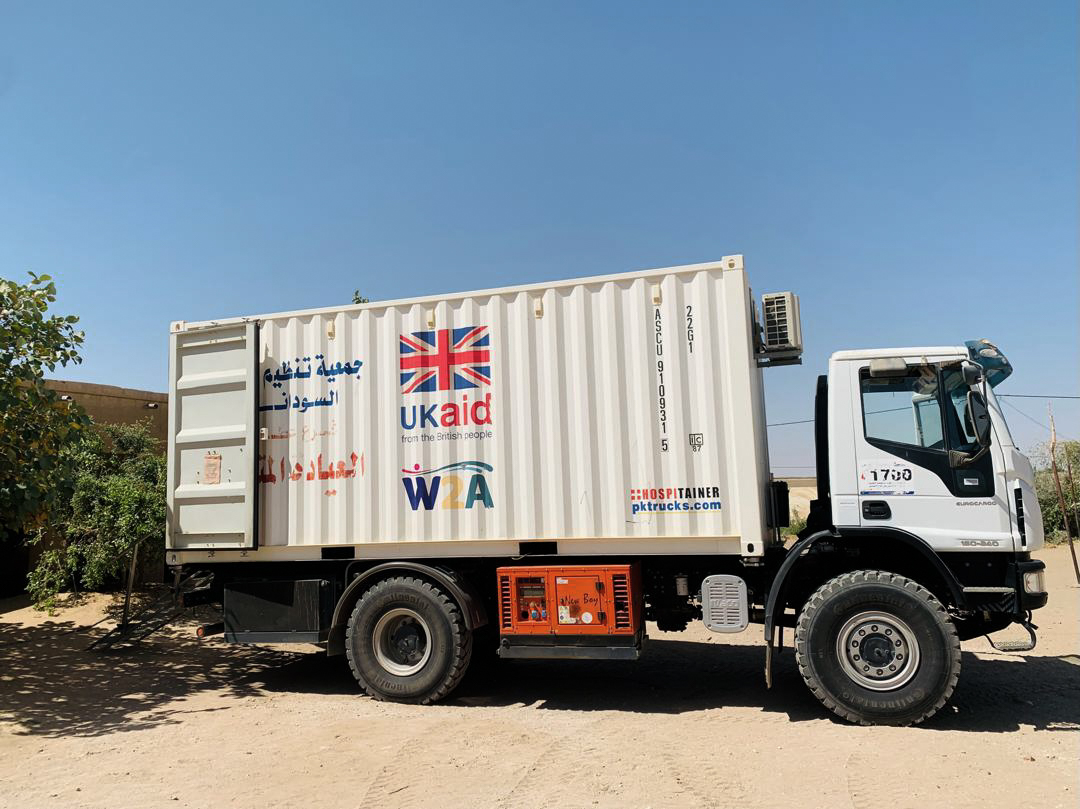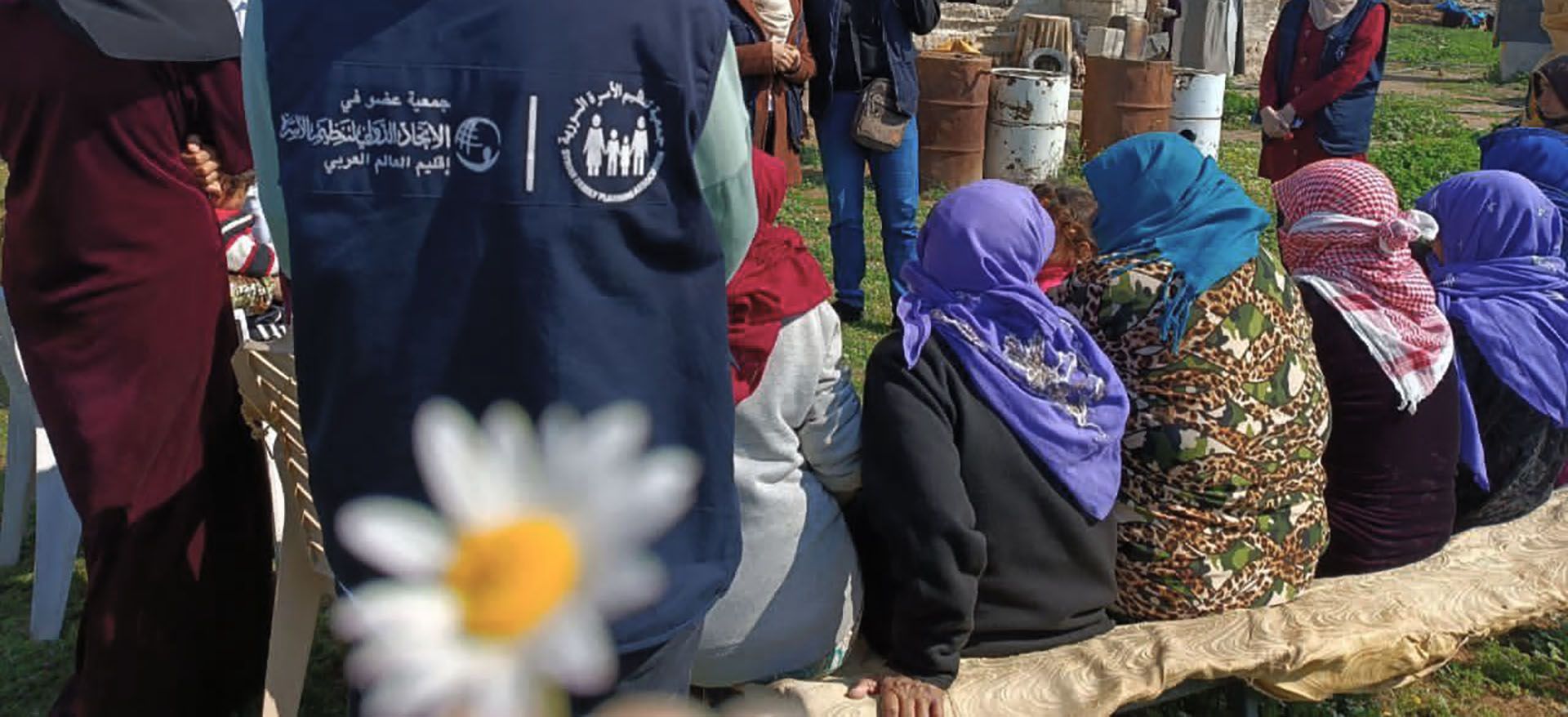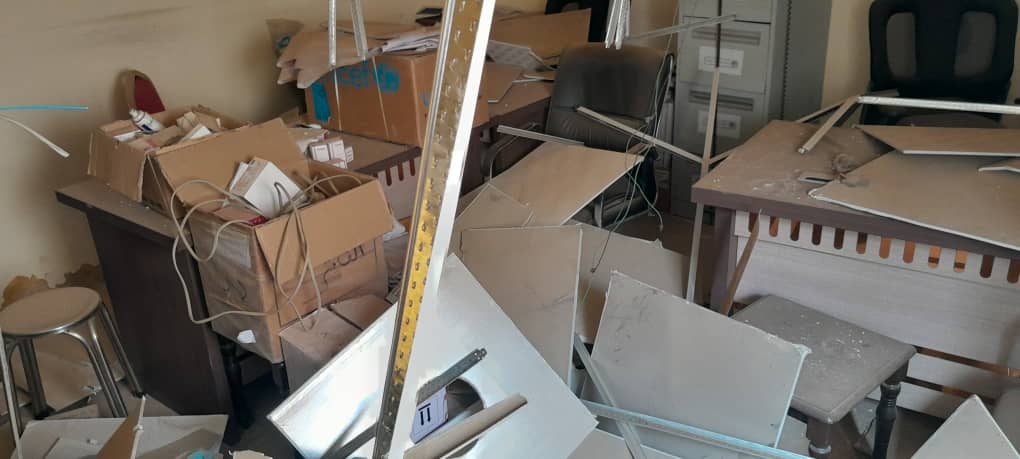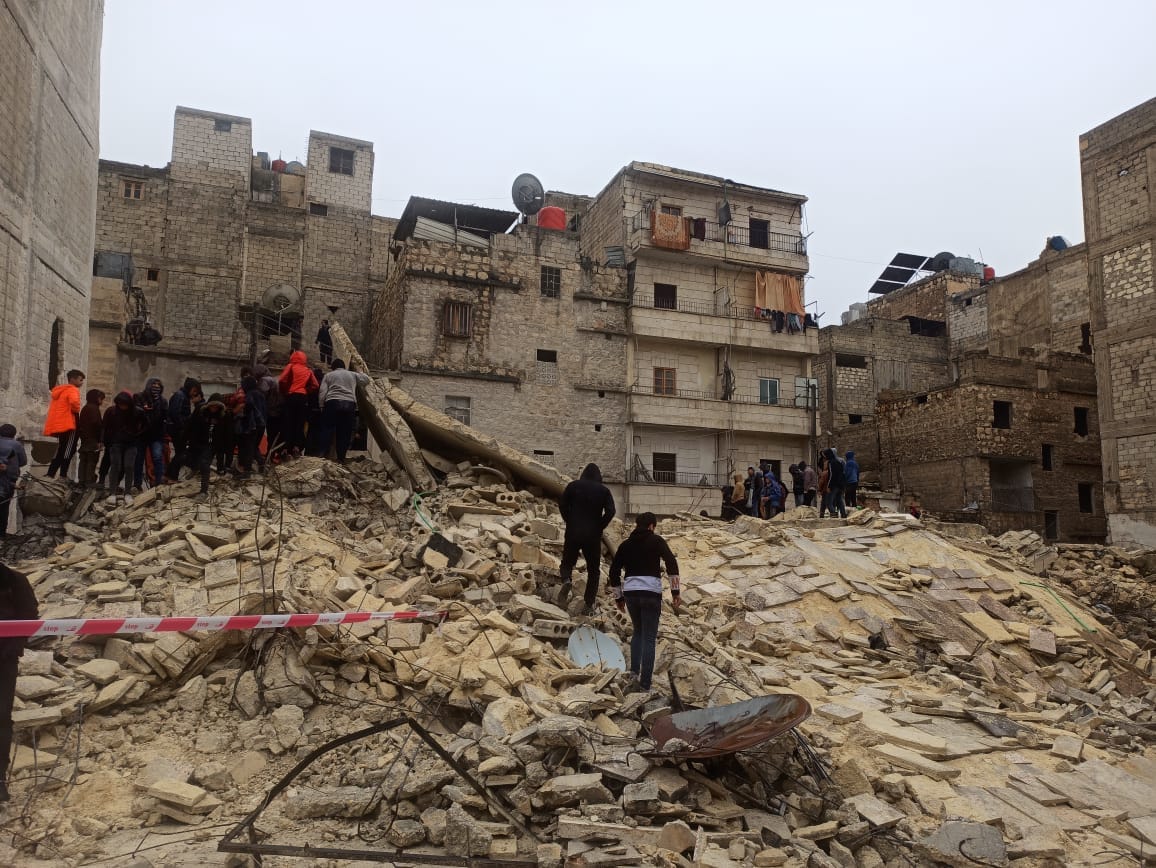Latest press releases
A selection of stories from across the Federation

Netherlands
Rutgers triumphs in landmark court case against lies, online hate and disinformation
Rutgers, the Netherlands’ leading sexual and reproductive health expert and IPPF’s Member Association, has today secured a landmark legal win against an ultra-conservative group.
For media enquiries


| 14 April 2025
Sudan’s First Mobile Telemedicine Clinic Brings Care to the Frontlines
15th April 2025, River Nile State, Sudan - In a groundbreaking step for healthcare access in Sudan, the Sudan Family Planning Association (SFPA) has launched the country’s first mobile telemedicine clinic in River Nile State. Funded by IPPF and FCDO, this innovation brings specialist remote care to people in isolated and conflict-affected areas, reducing the need for physical travel to health facilities. The mobile telemedicine clinic trucks are equipped with high-speed Starlink satellite internet and can travel to remote and rural locations. Clients receive essential treatment on-site and can connect directly, through secure video calls, with medical specialists across Sudan and internationally, including consultants based in Europe. This initiative is part of SFPA’s broader telemedicine project, designed to ensure the continued delivery of sexual and reproductive health services to the most vulnerable populations, particularly in areas where healthcare systems have collapsed due to conflict. Ms Kawthar, Executive Director of the SFPA branch in River Nile State, noted that the launch of the mobile telemedicine clinic, in Quoz Al-Halq, marks the beginning of a new era in healthcare service delivery within the state. “This project represents a landmark moment in Sudan’s healthcare history. We face enormous challenges in reaching people affected by conflict and displacement with essential health services. But this clinic changes what’s possible. We can now deliver integrated healthcare solutions through smart technologies – we’re breaking down barriers to health.” This innovation comes as Sudan approaches the third year of a brutal conflict, which began on 15 April 2023. Over 12.5 million people have been forcibly displaced[i], and more than two-thirds of the population are in need of humanitarian aid[ii]. Rates of sexually transmitted infections and gender-based violence, including sexual violence, have risen sharply[iii]. Many clinics and hospitals have been destroyed or abandoned. There is a severe shortage of qualified medical personnel, many of whom have fled the country. Access to care has disappeared entirely in some areas. SFPA facilities and staff have also been directly affected by the conflict, with nine of its clinics attacked, resulting in the tragic loss of volunteers and healthcare workers. Amid these challenges, SFPA managed to reach 9.8 million humanitarian clients in 2024. The new mobile telemedicine clinic offers a leap forward in how care can be delivered. It will provide: In-person and digital health consultations Psychosocial support for survivors of gender-based violence Awareness campaigns on reproductive health and sexually transmitted infections Fully integrated digital referral system, linking primary care with specialised medical facilities. Dr Siham Gaber, Director of Digital Health Interventions and Services at SFPA, said the initiative reflects the Association’s vision to harness technology for sustainable healthcare delivery in crisis contexts. “The mobile telemedicine clinic is a significant step forward in improving access to reproductive health services. It enables remote medical consultations and connects patients with doctors and specialists without the need for long-distance travel. This is especially important for women, youth and displaced people, who often face serious risks just to access a health facility. Now, they can get the right care where they are - safely and with dignity.” Mr El-Shafie Mohamed Ali, Executive Director of SFPA, added: “This clinic is not just a mobile health unit. It represents a comprehensive model for integrating telemedicine solutions into the provision of healthcare services. It contributes to expanding coverage and narrowing the health gap caused by conflict and insecurity.” The first phase of the project will see mobile telemedicine clinics deployed in five key states: River Nile, Red Sea, Kassala, Gedaref and Blue Nile. A second expansion phase will begin in May and aims to extend coverage across all 15 states where SFPA operates. This will ensure broader access to services for those most in need. “We remain dedicated to innovation and the scaling of digital solutions to ensure every Sudanese citizen, regardless of their location or circumstance, has access to quality healthcare,” said Mr El-Shafie Mohamed Ali. For more information and to speak to SFPA staff in Sudan, please email [email protected] ------- About the Sudan Family Planning Association The Sudan Family Planning Association (SFPA) was established in 1965 by pioneers in obstetrics and gynaecology in response to increases in maternal, neonatal and infant mortality and morbidity. As the statistics show, Sudan is a country in great need of frontline sexual and reproductive health (SRH) services. Advocacy, and undertaking information, education and communication (IEC) programs are critical. In 2024, SFPA provided 43.4 million services to 12.6 million clients (9.8 million of which were humanitarian clients) through 26 static clinics, 39 mobile clinics, 1499 community-based distributors, private physicians and associated clinics. About the International Planned Parenthood Federation The International Planned Parenthood Federation (IPPF) is a global healthcare provider and a leading advocate of sexual and reproductive health and rights (SRHR) for all. We are a movement of 150 Member Associations and Collaborative Partners with a presence in over 146 countries. Building on a proud history of 70 years of achievement, we commit to lead a locally owned, globally connected civil society movement that provides and enables services and champions sexual and reproductive health and rights for all, especially the under-served. We advocate for a world where people are provided with the information they need to make informed decisions about their sexual health and bodies. We stand up and fight for sexual and reproductive rights, and against those who seek to deny people their human right to bodily autonomy and freedom. We deliver care that is rooted in rights, respect, and dignity - no matter what. [i] https://www.unrefugees.org/news/sudan-crisis-explained/ [ii] https://humanitarianaction.info/plan/1220 [iii] https://www.unwomen.org/en/news-stories/press-release/2024/09/sudan-humanitarian-crisis-has-catastrophic-impact-for-women-and-girls-with-two-fold-increase-of-gender-based-violence

| 11 December 2024
We Must Protect Critical Sexual and Reproductive Health and Rights During Syria's Transition
IPPF remains steadfast in its commitment to supporting its Member Association, the Syrian Family Planning Association (SFPA), in providing essential SRHR services for all. Within the uncertainty and instability, we continue to work together with SFPA to empower communities, protect the rights of women and adolescents, and address the urgent needs of marginalized populations, particularly in the face of increased vulnerability. Our collective mission stands firm: we are committed to ensuring that dignity, health, and choice are accessible to all, regardless of political or social challenges. Even in these uncertain times, we believe that SRHR services must continue - because the need for family planning, maternal healthcare, and gender-based violence (GBV) support does not diminish, even in the midst of conflict. Syria is enduring a difficult period of transition, but sexual and reproductive health cannot be sidelined. The health and well-being of Syria’s most vulnerable populations, especially women and youth, remain a top priority. The work of SFPA is more essential than ever, as it continues to provide vital services such as family planning, postnatal care, and GBV screening. At Al-Hasakah, SFPA is on the frontlines, directly supporting over 5,000 people, the majority of whom are women in urgent need of reproductive healthcare services. These women face an increased risk of complications due to the lack of access to safe and comprehensive health services, but SFPA is committed to meeting their needs. From providing postnatal care to offering family planning options and GBV screenings, SFPA is ensuring that women in these vulnerable circumstances are not forgotten. SFPA’s clinics, such as the one in southern Daraa and the besieged Al-Waer in Homs, have become lifelines, serving as a beacon of hope for those in need. They provide up to 70 beneficiaries a day with crucial services, including health counselling and early marriage awareness. SFPA has faced significant challenges, including the seizing of vehicles and temporary clinic closures in the suburbs of Homs. Yet SFPA's perseverance in delivering SRHR services remains an essential lifeline for the people of Syria. We will continue to stand alongside SFPA in their tireless efforts to safeguard sexual and reproductive health rights, ensuring that every woman, adolescent, and marginalized person has access to the care they deserve. Together, we stand for dignity, health, and choice, even in the face of uncertainty. The challenges are great, but the importance of maintaining SRHR services is immeasurable. Through unwavering dedication, we can support those in need and contribute to a future where everyone has access to the care and rights they deserve. Contact: +44 7918 845944 Image credit: SFPA/Wasim Kashlan

| 02 July 2024
Another of our clinics in Sudan has been attacked, one less safe place for women and girls to get sexual and reproductive healthcare
Haz click aquí para leer este posicionamiento en español. Khartoum, 2 July 2024: Another horrendous attack on one of our healthcare clinics in Sudan has occurred this week. Several staff and volunteers from our Member Association in Sudan, the Sudan Family Planning Association (SFPA), have now been injured or killed by the Rapid Support Forces (RSF). Our clinic in El Fasher has been destroyed, meaning there is one less option for women and girls to receive lifesaving sexual and reproductive healthcare in the region. For over a month, ongoing battles around El Fasher, the capital city of North Darfur, have been taking place.The RSF, who have stationed themselves 10 kilometres from the city, have been indiscriminately shelling military and civilian targets. One of our SFPA volunteers, Mahasen Abdul Jabbar, was killed after being hit by gunshot at the clinic. This morning, Dr Daifallah Mohammed, a volunteer family medicine specialist in our El Fasher clinic, also died as a result of the warfare. The RSF bombardments have also severely injured several of our staff: Dr Marwa, a doctor at the Integrated Centre in El Fasher, was hit by shrapnel in her leg. A midwife at Abu Shouk centre, Halima Abdullah Adam, was hit and four of her children were injured and evacuated. The house of the guard of Abu Shouk centre was hit, killing his daughter and wounding four of his other children. One of our nurses has been hit with shrapnel and has been transferred to hospital and is in critical condition and all contact with her has been lost. The RSF has also been kidnapping our patients, their whereabouts unknown. This latest attack is on top of previous attacks on our clinics in Sudan, which destroyed our facilities in Khartoum and El Fashir and health centres run by SFPA between 7-9 September 2023. Women and girls in Sudan are facing an upsurge in sexual and conflict-related violence. Our staff have witnessed firsthand the impact of this heinous crime on the most vulnerable people, including women, girls and other marginalized groups. We previously reported that rape victims and survivors are struggling to obtain contraception, abortion medication and post-exposure anti-viral medications. They face severe and life-threatening consequences, including loss of family support and homes and shelters and increased risk of suicide. Survivors are afraid to seek medical treatment because of the stigma and fear of reprisals from rape. Fadoua Bakhadda, Regional Director, Arab World Region, said: “We unequivocally condemn all violence against civilians, especially against health centers that are attacked while providing essential services to those in need. Such acts are an affront to humanity and the sanctity of care. The murders, displacement and destruction in Sudan must stop. It is vital that warring parties remember their obligations under International Humanitarian Law, which include ensuring the protection of civilians and the protection of health structures and health personnel.” Dr Alvaro Bermejo, Director-General of IPPF, said: “We are devastated to learn of another attack on one of our clinics in Sudan, and the injuries and loss of lives to our staff and volunteers. Healthcare facilities, and most importantly, healthcare workers, must never be the target of war. The sexual and reproductive health and lives of 800,000 people in North Darfur – including women, children, and people with disabilities – are hanging in the balance as bombing and shelling cause widespread harm to civilians and severely disrupt the essential health services they very much depend on. Now, more than ever, our healthcare facilities must be protected so they can continue to provide care to the populations enduring these needless attacks. Our clinic, which previously was able to provide lifesaving sexual and reproductive healthcare such as prenatal care and contraceptives, is gone. Where will women and girls seek these services now? There must finally be a critical mass of people of conscience saying enough is enough in this forgotten crisis.” For more information and to speak to one of our staff in North Darfur, Sudan, please email [email protected] About the Sudan Family Planning Association The Sudan Family Planning Association (SFPA) was established in 1965 by pioneers in obstetrics and gynaecology in response to increases in maternal, neonatal and infant mortality and morbidity. As the statistics show, Sudan is a country in great need of frontline sexual and reproductive health (SRH) services. Advocacy, and undertaking information, education and communication (IEC) programs are critical. In 2023, SFPA provided 38 million services through 25 clinics, 272 associated clinics, 39 mobile clinics, 1494 CBD/CBS, and digital/Virtual channels. Since the start of the crisis on 15 April 2023, the association teams were successful in providing 8 million services through 25 SDPs and 10 million services through non damaged associated and mobile clinics. SFPA was able to assist 1,183 deliveries under bombardment and provided 170 943 treatments of HIV in its static clinics. About the International Planned Parenthood Federation The International Planned Parenthood Federation (IPPF) is a global healthcare provider and a leading advocate of sexual and reproductive health and rights (SRHR) for all. We are a movement of 150 Member Associations and Collaborative Partners with a presence in over 146 countries. Building on a proud history of 70 years of achievement, we commit to lead a locally owned, globally connected civil society movement that provides and enables services and champions sexual and reproductive health and rights for all, especially the under-served. We advocate for a world where people are provided with the information they need to make informed decisions about their sexual health and bodies. We stand up and fight for sexual and reproductive rights, and against those who seek to deny people their human right to bodily autonomy and freedom. We deliver care that is rooted in rights, respect, and dignity - no matter what.

| 04 December 2023
Rapes, unplanned pregnancies and sexual and gender-based violence on the rise in Sudan’s forgotten war
Khartoum, 4 December 2023 — As the war in Sudan enters its eight month with no end in sight, widespread conflict-related sexual and gender-based violence (SGBV) has continued unabated, including reports of mass rapes, sexual exploitation and sexual harassment which demonstrate how sexual violence is being used as a tool of war to subjugate, terrorise and punish women and girls. Since the war between Sudan’s Rapid Support Forces and the Sudanese Armed Forces erupted on April 15th, reports of ethnically targeted sexual and gender-based violence have escalated across Sudan, leading to a surge in unplanned pregnancies and sexually transmitted infections. The International Criminal Court (ICC) in The Hague said in July it is investigating the hostilities in Darfur, including reports of killings, rapes and crimes against children. Rape has often been used as a weapon of war over the years in Sudan, human rights groups have said. Sexual violence is prohibited in conflict, and the accounts of rape could constitute war crimes and crimes against humanity. The prevailing conflict and social unrest in various regions of Sudan have created an environment rife for SGBV, leaving countless individuals exposed to the gravest violations of their most intimate rights. Deeply disturbing accounts of gang rapes, sexual assault, harassment, and other forms of sexual, physical and psychological violence have emerged, highlighting the urgent need for comprehensive sexual and reproductive healthcare for survivors. IPPF’s local member association in Sudan, the Sudan Family Planning Association (SFPA) has been providing these services across Sudan since the outbreak of the war, including counselling, medical assistance, and referrals for survivors of SGBV. Despite unprovoked attacks on six SFPA facilities which have so far killed one youth volunteer and injured numerous clients and staff, as well as interrupted the delivery of some health services, SFPA has continued to work in conflict-affected areas through their large network of community based distributors and mobile clinics. Dr Seham Jaber, the director of Digital Health Interventions and Services at SFPA said: “We have noticed escalating rates of sexual and gender-based violence in Sudan since the outbreak of the war in April. Violence against women and girls is occurring at the hands of militants, as well as an increase in domestic and intimate partner violence, including rape. Young girls and boys are living in overcrowded shelters are reporting to us cases of sexual harassment and abuse." Confidentiality, sensitivity and compassion are crucial to SFPA’s work, because many survivors of sexual violence don’t seek medical treatment due to the fear of social stigma and reprisals. SFPA's website and hotline have seen a considerable increase in traffic for reports of SGBV from the community since the start of the war. In response, SFPA is also running community awareness and education campaigns on SGBV, and is enlisting the support of local Imams to promote gender equality, and foster a culture of respect and consent. For media inquiries or to speak to one of our staff in Sudan, please contact [email protected] About the Sudan Family Planning Association The Sudan Family Planning Association (SFPA) was established in 1965 by pioneers in obstetrics and gynecology in response to increases in maternal, neonatal and infant mortality and morbidity. Sudan is a country in great need of frontline sexual and reproductive health (SRH) services. In 2022, SFPA provided 26 million services through 24 clinics, 261 associated clinics, and 37 mobile clinics. Since the start of the war on 15 April 2023; the Association teams have been successful in providing 14,706,000 services through 24 SFPA facilities , mobile clinics, mobile teams ,CBDs and partners clinics . SFPA was able to assist 1,145 deliveries under bombardment and provided 167,000 treatments of HIV&AIDS “HIV screening and care for PLHIV” through its static clinics. Mobile clinics are used to offer integrated SRH services including HIV/STI services and condom distribution, STI testing and management, HIV testing and treatment for HIV opportunistic infections, referrals for ARV treatment including PMTCT and awareness sessions both at mobile clinics and at the community level by community health promoters and community base distributors (CBDs). About the International Planned Parenthood Federation IPPF, through its 149 Member Associations and collaborative partners, delivers high-quality sexual and reproductive healthcare and helps advance sexual and reproductive rights, especially for marginalized people with diverse needs that are currently unmet. IPPF's Member Associations and partners are locally owned, independent organisations, which means the support and care they provide are informed by local expertise and context. IPPF advocates for a world where people have the information they need to make informed decisions about their sexual and reproductive health and their bodies. We stand up and fight for sexual and reproductive rights and against those who seek to deny people their human right to bodily autonomy and sexual and reproductive freedom. We deliver care rooted in rights, respect, and dignity for all - no matter what.

| 09 February 2023
IPPF responds with SRH care to survivors of the earthquake in Syria
On Monday 6th February, catastrophic earthquakes hit Türkiye and Syria. Within hours, our local member association, the Syrian Family Planning Association (SFPA), was among the first responders assisting and evacuating people to safe shelter and accommodation in Syria. Dr. Lama Mouakea, Executive Director, Syrian Family Planning Association said: “In the aftermath of Monday’s earthquake, at least two hospitals have collapsed, three of our clinics have been damaged, and many health services have been disrupted. This will have an immediate, and dire, impact on women and girls. The catastrophic earthquake combined with the harsh winter makes our response even more critical. We have already sent mobile clinics to the areas affected to provide immediate healthcare.” Dr. Mouakea added: “Women and girls who are being moved into shelters in several areas, such as Aleppo and Idlib, may be subjected to violence or sexual abuse, so the medical and psycho-social service needs are great. We know of one devastating case of a mother giving birth to a baby while buried beneath rubble, who later sadly passed away. So getting pregnant women to safe spaces to deliver their babies is now essential. Our staff visit these areas continuously every week, so are already familiar with the communities and areas that are hardest hit. SFPA has been here before the earthquake providing humanitarian aid and will continue to serve these communities as they recover from this latest disaster.” Whilst also responding to other immediate needs, SFPA is ensuring sexual and reproductive healthcare is on the agenda as a critical component of the response, especially for women, girls and marginalized communities. Three in five preventable maternal deaths occur during natural disasters, and one in five women is likely to be pregnant during a crisis. Without access to reproductive healthcare, women and girls will suffer severe consequences, including miscarriage, premature labour, complications from unassisted deliveries and increased exposure to sexual and domestic violence, sexually transmitted infections, unintended pregnancy, unsafe abortion and even death. Julie Taft, Humanitarian Director, International Planned Parenthood Federation said: “IPPF is deeply saddened to hear of the news of the devastating earthquake in Türkiye and Syria. Our deepest condolences go out to the families who lost loved ones and whose homes were destroyed. Our member association in Syria has already started responding with mobile health clinics, and we stand ready to support the ongoing response efforts of our local partners in their delivery of vital, and lifesaving, sexual and reproductive healthcare to women, girls, and marginalized populations.” Twelve years of war and sanctions have left Syria’s infrastructure, including healthcare systems, battered. A crippling economic crisis has also driven humanitarian needs to record levels. SFPA has been responding throughout these interlinked crises ensuring continued sexual and reproductive healthcare services through their mobile and static clinics. Dr Alvaro Bermejo, Director-General of IPPF said: “It is amongst one of the most devastating natural disasters we have seen in recent times. The focus of all actors must be squarely on the needs of the people, particularly women and girls and those who are more vulnerable. It is not time to play geopolitics when women are giving birth amidst the devastation. It is time to focus on getting aid and support to where it is needed, now. It is not only the rubble that must be removed, but also any obstacle put in place by those in positions of power, locally, nationally or internationally.”
















